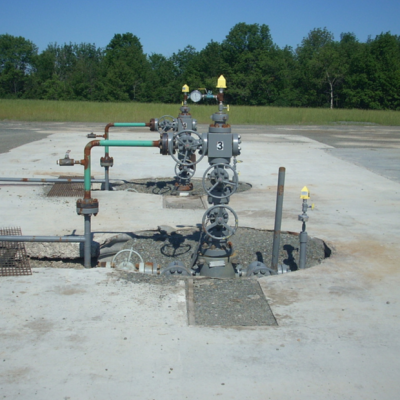August 31, 2015
August 2015 at Policy Integrity: What Is Nature Worth?; Energy Policy in NY and DC; In the News: Methane Regulation; On the Docket: Coal Leasing; Spotlight: Peter Miljanich
-
What Is Nature Worth?
Assigning a monetary value to environmental harm is notoriously tricky. Traditionally, the government has used a technique called “contingent valuation,” which amounts to asking individuals survey questions about their willingness to pay to protect natural resources. New research from Michael Livermore and neurologist Paul Glimcher uses powerful new tools to examine how the brain engages in environmental valuation, as discussed in their recent New York Times article. After observing subjects’ neurological activity, they found that the brain did not respond to contingent valuation studies the way it did to all other economic valuation tasks. Contingent valuation may overestimate environmental valuation, or it may underestimate it. According to Livermore and Glimcher, “The trick will be to figure out how to use functional magnetic resonance imaging technology, or other such tools, to directly estimate how people value the environment in economic terms.”
-
Weighing in on Energy Policy in NY and DC
As renewable energy and distributed generation become more popular, public service commissions across the country have become eager to spur clean energy innovation and improve consumer choice and affordability. Policy Integrity recently submitted comments to both New York State and the District of Columbia, addressing how best to develop a cost-benefit analysis framework to evaluate energy policy decisions. Policy Integrity’s comments encouraged the commissions to consider externalities and the social cost of carbon in their cost-benefit analyses. Specifically, Policy Integrity suggested a comprehensive cost-benefit analysis that monetizes all benefits and costs of alternative proposals, including externalities, in order to determine which energy projects to prioritize.
-
In the News: Methane Regulation
The EPA’s proposed regulation to reduce methane emissions from the oil and gas sector has sparked a wave of criticism. Industry groups claim that the rule is unnecessary since companies already have an incentive to capture and sell methane as natural gas. In an article in The Hill, Richard Revesz explains how these critiques ignore economics, because companies do not account for the social costs of methane emissions. “By regulating methane emissions, the EPA compels companies to act in the best interests of the public and to reduce emissions, even if individual controls aren’t immediately profitable,” he writes. The piece also explores why the new rule may not be sufficient to control emissions, as it applies only to new and modified sources. Older, “grandfathered” sources can continue to emit indefinitely.
-
On the Docket: Coal Leasing
Coal mining on federal lands accounts for more than 40 percent of all coal produced in the United States. As a result of outdated fiscal policies, longstanding loopholes, lack of transparency, and high external costs, American taxpayers are not receiving their fair share for coal mined on America’s public lands. We will soon submit public comments asking the Department of the Interior to modernize the federal coal program in order to uphold its mandate to balance conservation with production. We will suggest closing corporate loopholes, updating outdated fiscal terms, and accounting for social and environmental costs. Jayni Hein recently made similar recommendations to the Department at a public listening session in Washington, D.C.
-
Spotlight: Peter Miljanich
Peter Miljanich, a former student in Policy Integrity’s Regulatory Policy Clinic, is now the Deputy County Counsel in charge of water law issues for Solano County, California. He is the lead attorney for the county’s implementation of California’s historic new groundwater management regime, and he represents the county in negotiations and proceedings regarding the fate of the largest estuary on the west coast. Before coming to Solano County, Miljanich spent three years as an associate at a public interest law firm specializing in government, land use, and environmental law. “I rely heavily on the training that I received at Policy Integrity, not only to improve the quality of local government decision-making, but also to analyze and influence environmental law and policy at the state and federal level,” says Miljanich.




